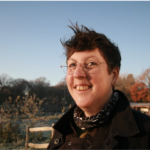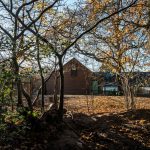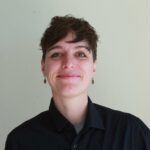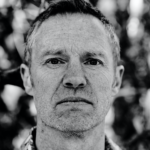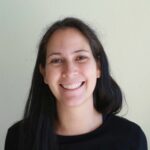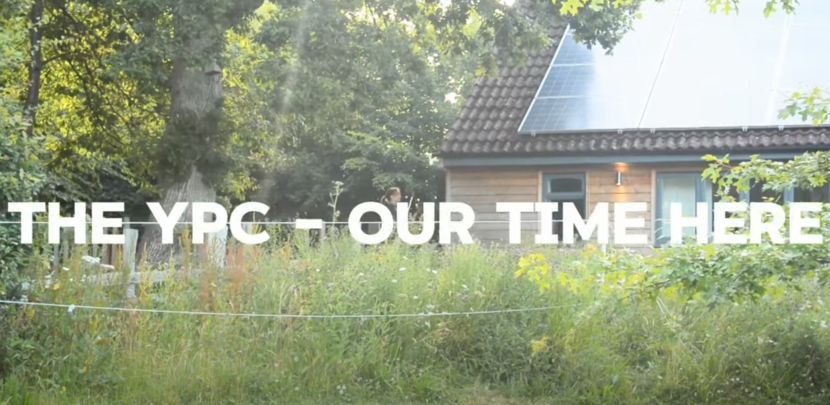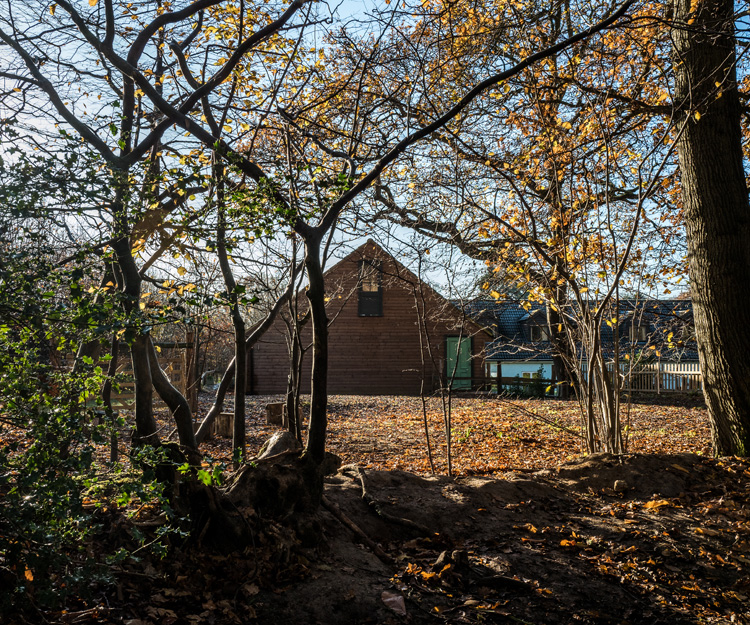We exist to aid your child’s natural development from birth to maturity.
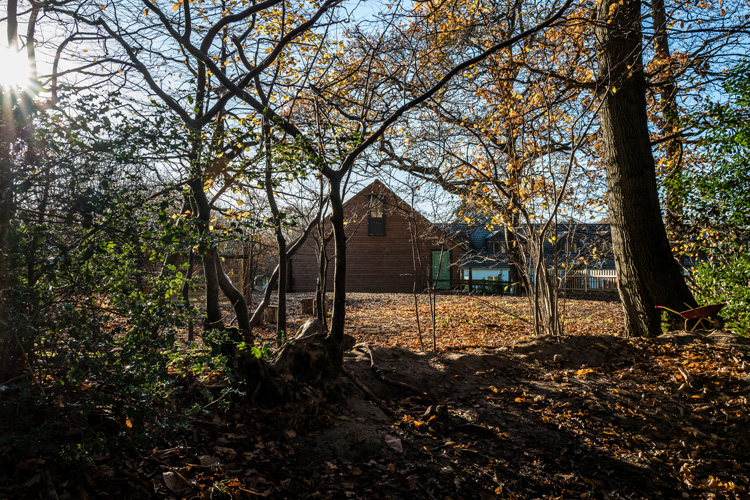
The idea
The idea for The Montessori Place started when Rob and Paul were working at the Maria Montessori Institute (MMI) in London, the UK’s main Montessori training centre. Alongside their day to day work with children in their respective ‘Children’s Houses’, they were both heavily involved in developing a vision for the MMI in 2020.
They spent many months consulting parents, interviewing Montessori teachers, researching other educational approaches, and exposing themselves to the richness and diversity of the global Montessori movement. Over this period, it became clear that the word ‘Montessori’ evoked in most people’s minds the picture of a nursery for 3-6 year olds. Although a true image, it is not the whole truth: Montessori is in fact an approach to raising children: a natural, coherent approach stretching from conception all the way to adulthood.
Could a way forward for the Montessori movement in the UK be to share with parents ‘a Montessori way’ of bringing up children, especially between the ages of 0-3?
Once the strategic plan was written, Rob and Paul decided to take it forward. They started to build a small team of committed Montessorians, to create a place that offered ‘The full Monty’ for children and their families in the first 12 years of life. From this foundation they then hoped to offer similar services up to age 18.
Read more
The people
The first person they spoke with was Laura, whose gentle manner with the children shines through. Rob was working with her in a Children’s House in Notting Hill while Paul had worked with her in a Children’s House in Hampstead. Laura leapt at the chance of coming to work at The Montessori Place down by the sea in Hove. Laura grew up by the sea in Venezuela, and was under the impression that the Sussex coast would be much the same.
Next Rob’s mentor Karen told him that anyone thinking of starting a Montessori place near Hove had to get in touch with Sarah. Sarah had been employed by Karen and worked with her in the Hampstead Children’s House moving to Lewes to raise her children Stanley and Rosy. When Rob and Paul met Sarah, it was obvious why Karen spoke so highly of her. It wasn’t long before Sarah became the fourth member of The Montessori Place team.
The place
It is surprisingly hard to find the right property in the right place with the right planning permission. Rob, Laura, Sarah and Paul spent many hours pouring over maps calculating 1-mile circles around different parts of town. They followed estate agents to all manner of unsuitable properties in the right location, to suitable properties in the wrong location before spotting an interesting looking place on the Cromwell Road. It was pretty run down and had nurseries on either side, but something about it just seemed right. A proper little house, in need of some love, and reachable from all over town. Many letters, phone calls and meetings later the house belonged to The Montessori Place.
The children and parents refer to it as “the House”, and so do we. The House is on 45 Cromwell Road, in Hove, across from the Sussex County Cricket grounds.
Most buildings are designed for adults. Children in these environments are like tourists in a foreign land: never quite at home. 45 Cromwell Road used to be a language school for adults. We have stripped it out and renovated it with love – each day it welcomes small feet, curious minds, big hearts, and active hands
Read less

Our most recent Full School inspection (ages 3 to 16), published in November 2017.
“In this safe and incredibly nurturing environment, children and pupils of all ages are routinely deeply engrossed in their learning. Pupils are highly self-disciplined. Their behaviour is impeccable.”
“The exceptional diversity within the curriculum means that children develop and extensive range of knowledge, understanding and skills, often beyond typical age-related expectations.”
“Words parents used to convey their opinion about the school, the environment, the staff and how well their children are doing included: ‘astounded’; ‘marvel’; ‘extraordinary’; ‘amazing’; ‘truly inspirational’; ‘completely dedicated’; and ‘harmonious'”
“Pupils master a wide range of learning skills and are impressively self-sufficient in sustaining their focus and engagement. There is a palpable sense of ownership by pupils in their activities, learning and work. They are rightly and hugely proud of their school.”
“Learning is very often at a more advanced level than is typical for pupils’ age. The concepts explored linked to mathematics, science, geography and history, for example, are often complex. Pupils are rightly proud of their work and achievements.”
“The highly skilled lead guides know exactly how and when to interact or intervene with the children. They resist doing this too soon, but similarly are alert and highly responsive so that no child flounders unhelpfully. Their deep knowledge of every individual enables them to be successful in this delicate balancing act.”
“Children quickly develop incredibly high levels of independence. They are remarkably self-sufficient.”
Read the full report here.
Read more
Our 2012 Full School inspection
“Children are confident, independent, articulate and happy and their behaviour is outstanding.”
” Children make outstanding progress and their standards in the basic skills of reading, writing and mathematics are in many cases above those usually seen for their age.”
“Their skills, abilities and levels of independence are far higher than usually seen.”
” The curriculum is outstanding… exceedingly well tailored to meet every child’s needs.”
” The key strength of the curriculum is how it is used to develop exceptionally high levels of independence for each child”.
” Teaching and assessment are outstanding. From the very youngest children to the oldest, the attention to detail in providing resources and activities is exemplary”.
“As one parent said, ‘The teachers are well trained and genuinely love what they do. The children love them. They know the children well and do everything possible to bring joy to learning.’ This is true”.
“The older children are able to develop their investigative skills in depth, demonstrating high levels of concentration in their work and are totally absorbed in the detail of their learning.”
“Adults very accurate, detailed and and effective observations, assessments and planning provide children with a wide range of individual learning experiences. As a result activities match all children’s needs extremely well, promoting curiosity and interest”.
“In the short time the school has been in existence, it has developed a warm, welcoming and friendly family atmosphere. A real strength of the school is how quickly the partnerships with parents and caregivers has been established”.
Read the full report here.
Our most recent Early Years inspection
“This provision is outstanding.
- Children have exemplary opportunities to be independent, make decisions and take responsibility for what they do.
- Staff have exceptional skills in assessing children’s engagement in activities and their achievements, and planning for their future learning. Children make rapid progress as a result.
- Leaders and managers have an inspirational approach to their work, using Montessori educational methods to bring about excellent outcomes for children.
- Children show exceptionally good behaviour. They are polite, thoughtful and considerate as a result of the strong focus on ‘grace and courtesy’.
- Staff have highly effective methods for judging when children are ready to move on to the next stage of their learning, which means that any transition within the setting appears seamless.”
Click here to download our latest Ofsted report – focused on children aged 1-5.
Note: The report mistakenly identifies our previous inspection as having been in December 2011 with an outcome of “Good”. In actual fact the previous inspection was a whole school inspection in February 2012 and the outcome was “Outstanding in all areas“.
Ofsted attributes the error to a technical problem in their system, and say that it cannot be helped because school inspections and early years inspections take place under separate inspectorates.
Read less

Over one hundred years ago, Dr. Maria Montessori discovered that children are born with a profound desire to interact with their environment in an intelligent way. She found that children flourished when they were left free to direct their own learning, within a prepared environment.
She pioneered a radical approach to education based on the scientific study of how children grow and learn, and the design of living and learning environments that meet their changing developmental needs.
The Montessori approach is characterised by the following:
- Mixed age groups
- Hands-on learning by doing
- Individualised learning
Read more
Mixed Age Groups
Mixed-age groups (age 1 to 3, 3 to 6, 6 to 12 and 12 to 18) enable the children to collaborate with and learn from each other as well as from the adults. Classrooms resemble workplaces or laboratories, with different children working on different activities, alone or in small groups, following their interests and learning at their own pace. Visitors stepping into a Montessori community often say they are struck by the hum of harmonious and varied activity.
Hands-on Learning by Doing
The children learn through hands-on work rather than by listening to an adult speaking. They work using materials that are designed to help them master skills or areas of knowledge and understanding appropriate to their stage of development. These Montessori materials have been created and refined through practical experience working with tens of thousands of children over the past 100 years.
Individualised Learning
Each child’s experience is unique to them. Personalised lessons are offered to individuals or small groups. This allows for a highly individualised interaction between the adult and each child. The adult knows intimately what each child has mastered, or where they need additional practice. The adult (called their Guide) mentors them towards ownership and responsibility for their own learning.
The result? Children develop concentration, confidence, self-discipline and a love of learning. And as one might expect, studies show these children also do better academically.
Read less

The approach grew out of work that Dr. Maria Montessori did with 60 children in a deprived part of Rome, in 1907. She was at that time a qualified physician, renowned advocate for woman’s rights, and a professor of anthropology at the University. Clearly a ‘high-flyer’, yet she was so amazed by what she saw the children reveal, that she gave up much of her other work, including her chair at the University, to focus on working with little children.
Scientific Training
Montessori’s training as a physician brought a uniquely scientific approach to her work with children. She observed children in her medical practice, and studied their physical and mental growth. Her central conclusion was this: children teach themselves. They build their minds by interacting with the environment. Science agrees with her today.
Over the next five decades Dr Montessori, together with her son and collaborator Mario, articulated a comprehensive approach to education from birth to maturity. The entire approach centered around her discovery that children teach themselves if they are offered freedom within an environment specially prepared to meet their developmental needs.
The design of these ‘prepared environments’ evolved over a number of decades, and continues to evolve under the guidance of the Association Montessori Internationale (AMI) set up by Dr. Montessori in 1929.
Read more
Timeless Education for a Changing World
Isn’t an educational approach that is over 100 years old a little out-dated? After all, the content of what children learn today is utterly different from what they learnt even 10 years ago. Yet the ability that the child has to teach themselves is a psychological fact of the human being that has not changed for at least 10,000 years. Any educational approach designed around what children learn is constantly out-of-date – unlike an educational approach built around how children learn. This is why we say Montessori is ‘timeless education for a changing world’.
Ultimately, the child is the designer of these ‘prepared environments’. Everything we offer in a prepared environment exists because children have shown a deep interest in them. When we offer a child a particular exercise with a particular material, it is because a number of children at multiple points in the past, and in multiple countries, have done exactly those exercises with exactly those materials without being shown by an adult.
The Montessori Movement
Montessori is a worldwide movement today, with some 8,000 schools in 6 continents. Famous Montessori graduates include the founders of Amazon, of Wikipedia and of Google, who credit their success to a Montessori education.
The AMI continues to guide the evolution of Montessori pedagogy, ensures the quality and rigour of its teacher training programme remains high, evaluates and approves the manufacturers of Montessori materials (there are just three approved manufacturers in the world), and represents the collective voice of individuals around the world who love this way of seeing the child.
For her work, Dr. Montessori has been considered for a Nobel Prize on three occasions. When Dr. Montessori was introduced to the UNESCO General Assembly, the Director General said:
‘In our midst we have someone who has become the symbol of our great expectations for education and world peace’.
Ultimately, Montessori is education for peace: a peaceful and harmonious relationship between adults and children, leading to a peaceful and harmonious world.
Read less
Our blog
The YPC – Our Time Here: A series of online presentations
Hello everyone, from prospective parents to interested visitors to our website! We, the young people, are offering a series of six online presentations about our time in the… more


